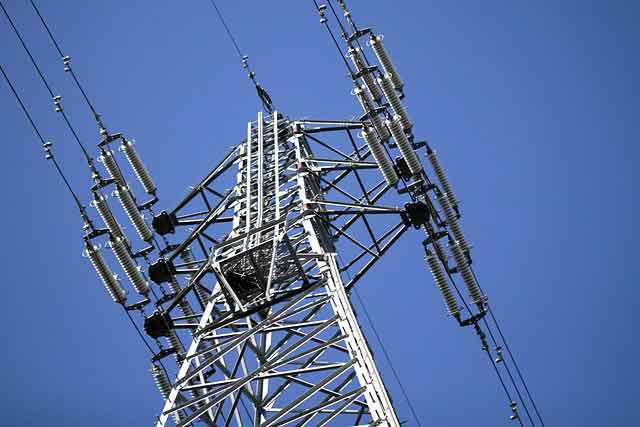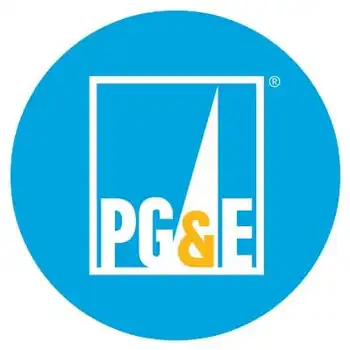PORTLAND, OREGON - PacifiCorp and Northwest Natural Gas have paid significantly more in income taxes in recent years than they have collected through consumer rates, according to newly required tax reports filed with the Oregon Public Utility Commission.
The disclosures, required under a new utility tax law, seem to contradict consumer advocates' claims that for years utilities have grossly overcollected to cover their income taxes. Consumer groups immediately questioned the reports to the PUC. They directed much of their anger at PacifiCorp, accusing the utility of bogus calculations. They contend the utility is defying temporary rules that regulators recently adopted to guide the law's implementation. Regulators cautioned that a multitude of questions need to be answered and more annual tax reports submitted before accurate assessments can be made. Beginning in the 2006 tax year, the reports will provide the basis for rate adjustments - up or down - to bring tax collections in line with tax payments. "Customers could get money or they could end up paying," said Judy Johnson, the PUC's manager of rates and tariffs. "It's going to be a while yet before we know what the adjustments will actually be." The tax reports are the latest flash point in a process designed to implement Senate Bill 408, which was passed by the Legislature in its last session and signed into law by Gov. Ted Kulongoski on Sept. 2. The law is designed to close the gap between applicable fees collected from ratepayers and income taxes paid to local, state and federal governments. While the objective appears straightforward, it has become entangled in the details of federal tax codes and state rate-making regulations and sharp differences of opinion between utilities and consumer groups. PacifiCorp, one of the law's strongest critics, has declined to abide by the PUC's temporary rules, instead settling on a narrower reading of the law. PacifiCorp acknowledged that the tax report, filed Friday, did not comply with the temporary rules. It has petitioned the PUC to repeal the draft provisions. "The temporary rules go far beyond the intent of SB408," said Kevin Lynch. PacifiCorp's regional vice president. "Our filing is made in compliance with the law." Consumer groups said PacifiCorp was obligated to comply with the temporary rules. Bob Jenks, executive director of the Citizens' Utility Board, called the report "meaningless." "It doesn't tell us anything helpful at all," he said. Dan Meek, a Portland attorney and consumer advocate, said he'll go to court to try to bring PacifiCorp into compliance. "They're stonewalling," said Meek, who for years has argued that utilities have inflated rates to pay nonexistent taxes. According to PacifiCorp's report, tax payments by its parent company, PacifiCorp Holdings Inc., exceeded taxes collected as part of rates by $11.5 million in fiscal 2005, which ended March 31. Tax payments exceeded taxes collected by $3 million in fiscal 2004, according to the report. In 2003, however, the report says the utility collected $1.5 million more than it paid. PacifiCorp is part of PacifiCorp Holdings' consolidated tax group, which means the utility's tax liability is combined with the losses or gains of other affiliates to determine the final tax payment. PacifiCorp Holdings is part of Glasgow, Scotland's ScottishPower, which bought PacifiCorp in 1999. Details about how PacifiCorp calculated its tax payments are confidential. Only a cover letter that contains the bottom line numbers is available to the public, according utility officials and the PUC. Key to the issue is the degree to which PacifiCorp Holdings disclosed the tax payments of its numerous affiliates and any tax savings from the affiliates that might be linked to the regulated utility, PacifiCorp. A critical phrase in the law involves the definition of taxes "properly attributable" to the utility. Meek said he will push the PUC to release PacifiCorp's backup calculations. And he said he's certain he will find inaccuracies. Utilities that are part of large corporations with multiple subsidiaries can devise tax strategies to minimize payments and maximize cash flow, he said. "It's virtually impossible to pay more in income taxes than what's allowed in rates," he said. Melinda Davison, an attorney with Industrial Customers of Northwest, agrees that SB408, if followed as intended, will result in lower rates for most Oregon utilities. PacifiCorp's Lynch said the tax reports carry a distinctly different message. "They answer the fundamental question, 'Have utilities been taxpayers?' And the answer is yes," Lynch said. The tax report filed by Northwest Natural Gas showed that the utility paid $22.14 million more in taxes during the past three years than it collected. Portland General Electric, a subsidiary of Enron, reported far different results. In the past three years, it overcollected almost $130 million for taxes that never reached government authorities. PGE's numbers weren't a surprise. Enron, which has emerged from bankruptcy and is transferring PGE ownership to creditors, became known for its money-losing ventures, which led to its demise. Enron was able to offset the gains of subsidiaries such as PGE with losses of other ventures, whittling its tax payments to zero. PGE officials emphasized Tuesday that the reports reflected the utility's history as an Enron holding. Once the ownership transfer is complete, PGE will be an independent, publicly traded company with a tax bill to pay, spokesman Kregg Arntson said. For his part, Meek also objected to PGE's tax filing, arguing that the utility's overcollections were at least double the amount reported.
Consumer groups immediately questioned the reports to the PUC. They directed much of their anger at PacifiCorp, accusing the utility of bogus calculations. They contend the utility is defying temporary rules that regulators recently adopted to guide the law's implementation.
Regulators cautioned that a multitude of questions need to be answered and more annual tax reports submitted before accurate assessments can be made. Beginning in the 2006 tax year, the reports will provide the basis for rate adjustments - up or down - to bring tax collections in line with tax payments.
"Customers could get money or they could end up paying," said Judy Johnson, the PUC's manager of rates and tariffs. "It's going to be a while yet before we know what the adjustments will actually be."
The tax reports are the latest flash point in a process designed to implement Senate Bill 408, which was passed by the Legislature in its last session and signed into law by Gov. Ted Kulongoski on Sept. 2.
The law is designed to close the gap between applicable fees collected from ratepayers and income taxes paid to local, state and federal governments. While the objective appears straightforward, it has become entangled in the details of federal tax codes and state rate-making regulations and sharp differences of opinion between utilities and consumer groups.
PacifiCorp, one of the law's strongest critics, has declined to abide by the PUC's temporary rules, instead settling on a narrower reading of the law.
PacifiCorp acknowledged that the tax report, filed Friday, did not comply with the temporary rules. It has petitioned the PUC to repeal the draft provisions.
"The temporary rules go far beyond the intent of SB408," said Kevin Lynch. PacifiCorp's regional vice president. "Our filing is made in compliance with the law."
Consumer groups said PacifiCorp was obligated to comply with the temporary rules. Bob Jenks, executive director of the Citizens' Utility Board, called the report "meaningless."
"It doesn't tell us anything helpful at all," he said.
Dan Meek, a Portland attorney and consumer advocate, said he'll go to court to try to bring PacifiCorp into compliance.
"They're stonewalling," said Meek, who for years has argued that utilities have inflated rates to pay nonexistent taxes.
According to PacifiCorp's report, tax payments by its parent company, PacifiCorp Holdings Inc., exceeded taxes collected as part of rates by $11.5 million in fiscal 2005, which ended March 31. Tax payments exceeded taxes collected by $3 million in fiscal 2004, according to the report.
In 2003, however, the report says the utility collected $1.5 million more than it paid.
PacifiCorp is part of PacifiCorp Holdings' consolidated tax group, which means the utility's tax liability is combined with the losses or gains of other affiliates to determine the final tax payment.
PacifiCorp Holdings is part of Glasgow, Scotland's ScottishPower, which bought PacifiCorp in 1999.
Details about how PacifiCorp calculated its tax payments are confidential. Only a cover letter that contains the bottom line numbers is available to the public, according utility officials and the PUC.
Key to the issue is the degree to which PacifiCorp Holdings disclosed the tax payments of its numerous affiliates and any tax savings from the affiliates that might be linked to the regulated utility, PacifiCorp. A critical phrase in the law involves the definition of taxes "properly attributable" to the utility.
Meek said he will push the PUC to release PacifiCorp's backup calculations. And he said he's certain he will find inaccuracies. Utilities that are part of large corporations with multiple subsidiaries can devise tax strategies to minimize payments and maximize cash flow, he said.
"It's virtually impossible to pay more in income taxes than what's allowed in rates," he said.
Melinda Davison, an attorney with Industrial Customers of Northwest, agrees that SB408, if followed as intended, will result in lower rates for most Oregon utilities.
PacifiCorp's Lynch said the tax reports carry a distinctly different message.
"They answer the fundamental question, 'Have utilities been taxpayers?' And the answer is yes," Lynch said.
The tax report filed by Northwest Natural Gas showed that the utility paid $22.14 million more in taxes during the past three years than it collected.
Portland General Electric, a subsidiary of Enron, reported far different results. In the past three years, it overcollected almost $130 million for taxes that never reached government authorities.
PGE's numbers weren't a surprise. Enron, which has emerged from bankruptcy and is transferring PGE ownership to creditors, became known for its money-losing ventures, which led to its demise.
Enron was able to offset the gains of subsidiaries such as PGE with losses of other ventures, whittling its tax payments to zero.
PGE officials emphasized Tuesday that the reports reflected the utility's history as an Enron holding. Once the ownership transfer is complete, PGE will be an independent, publicly traded company with a tax bill to pay, spokesman Kregg Arntson said.
For his part, Meek also objected to PGE's tax filing, arguing that the utility's overcollections were at least double the amount reported.
Related News

Stellat'en and Innergex Sign Wind Deal with BC Hydro
VANCOUVER - In December 2024, a significant development unfolded in British Columbia's renewable energy sector as Stellat'en First Nation and Innergex Renewable Energy Inc. announced the signing of a 30-year electricity purchase agreement with BC Hydro. This agreement pertains to the Nithi Mountain Wind Project, a 200 MW initiative poised to enhance the province's clean energy capacity.
Project Overview
The Nithi Mountain Wind Project is a collaborative venture between Stellat'en First Nation, which holds a 51% stake, and Innergex Renewable Energy Inc., which holds a 49% stake. Located in the Bulkley-Nechako region of British Columbia, the project is expected to…




